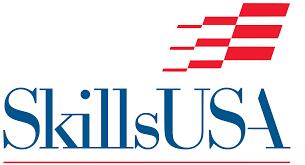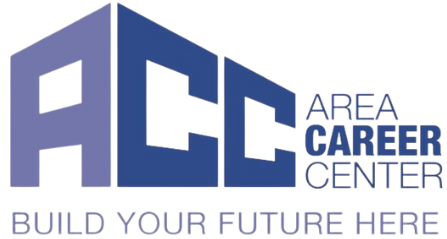Construction Trades - Carpentry
Construction Trades-Carpentry Overview
Construction Trades Carpentry is an exciting program with both classroom and hands-on learning. Students will learn the types and uses for common hand and power tools, basic terminology associated with construction drawings, and safety procedures for handling tools and materials as well as job site safety. Students will also learn the construction process through the building of projects.
- Principles of Construction Trades
- CT: General Carpentry
- CT: Framing & Finishing
- Construction Trades Capstone
Next Level Programs of Study Course #7130
Principles of Construction Trades prepares students with the basic skills needed to continue in a construction trade field. Topics will include an introduction to the types and uses for common hand and power tools, learn the types and basic terminology associated with construction drawings, and basic safety. Additionally students will study the roles of individuals and companies within the construction industry and reinforce mathematical and communication skills necessary to be successful in the construction field.
Next Level Programs of Study Course #7123
Construction Trades: General Carpentry builds upon the skills learned in the Principles of Construction Trades and examines the basics of framing. This includes studying the procedures for laying out and constructing floor systems, wall systems, ceiling joist and roof framing, and basic stair layout. Additionally, students will be introduced to building envelope systems.
Next Level Programs of Study Course #7122
Construction Trades: Framing and Finishing prepares students with advanced framing skills along with interior and exterior finishing techniques. Topics include roofing applications, thermal and moisture protection, exterior finishing, cold-formed steel framing, drywall installation and finishing, doors and door hardware, suspended ceilings, window, door, floor, and ceiling trim, and cabinet installation.
Next Level Programs of Study Course #7242
The Construction Trades Capstone course covers the basics of electricity and working with concrete. Electrical topics include the National Electric Code, electrical safety, electrical circuits, basic electrical construction drawings, and residential electrical services. Students may also gain an understanding of concrete properties, foundations, slab-on-grades, and vertical and horizontal formwork.
Students may be given the opportunity to go off-site to work on different projects at nearby businesses or homes. Transportation is provided.
This course may be offered to Juniors who complete curriculum in an exemplary fashion. It is NOT guaranteed.



Construction Trades - Carpentry students are eligible for the following free dual credits with Ivy Tech:
|
Course |
Course Title |
Credits |
| BCTI100 | Introduction to Construction Technology | 3 |
| BCTI101 | Introduction to Carpentry Part 1 | 3 |
| BCTI103 | Carpentry Framing & Finishing Part 1 | 3 |
 Carpentry Level One Apprentice Certification
Carpentry Level One Apprentice Certification
Work-Based Learning
As part of the Construction Capstone course, students are required to complete a minimum of 75 hours of Work-Based Learning (WBL). These hours are completed during class at local businesses and/or homes. These activities are secured and supervised by either the Construction Program Instructor of Paraprofessional
Before beginning any internship, students meet with Ms. Ford, College and Career Pathway Coordinator, to complete the required onboarding process. This includes:
- Internship Agreement
- Parent/Guardian Consent Form
- Training Plan
All required documentation is managed digitally through JobReady360, an online platform and mobile app that allows students, parents, and instructor to easily track and submit progress and paperwork.
Work-Based Learning is a critical component of the student's career preparation, helping them build professional skills and gain real-world experience in their chosen field.

It is the policy of the Area Career Center (ACC) not to discriminate on the basis of race, color, national origin, sex, or disability in its career and technical education programs, services, and activities, including employment policies and practices. The ACC will take steps to assure that the lack of English language skills will not be a barrier to admission and participation in the ACC's career and technical education programs. For information regarding nondiscrimination policies, please contact: LaTerra Smith, TitleIX/Section 504 Coordinator, lrsmith@hammond.k12.in.us
This site provides information using PDF, visit this link to download the Adobe Acrobat Reader DC software.
